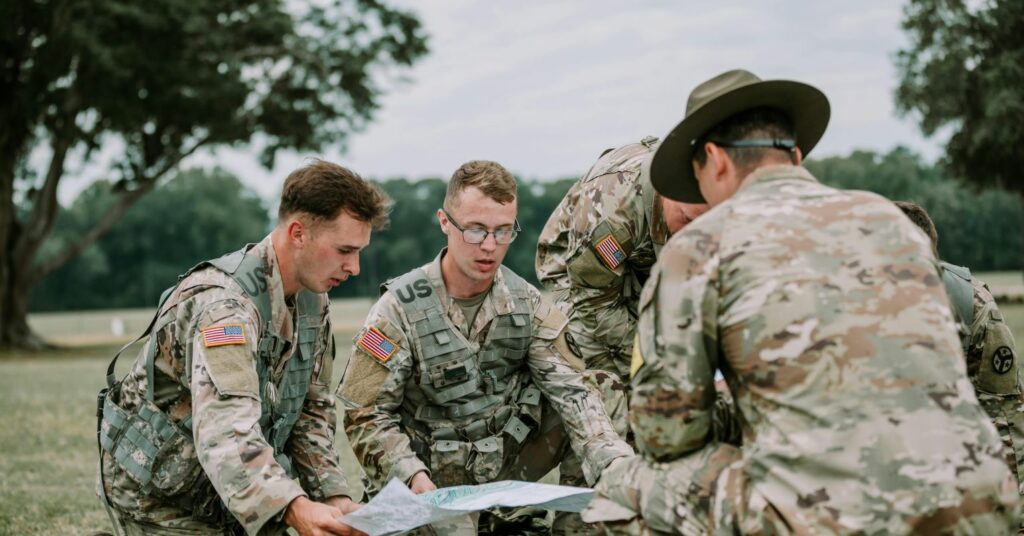Twenty years ago, I partnered with Angela Duckworth to study whether grit — the passionate pursuit of long-term goals — is linked to West Point cadet candidates’ success in completing Cadet Basic Training (CBT). Cadet candidates must complete this challenging training before being accepted into West Point’s Corps of Cadets and beginning their four-year regimen of academic, physical, and leadership training that results in their eventual awarding of a Bachelor of Science degree and a commission as a U.S. Army officer. Our research findings, published in 2007, revealed that grit was strongly linked to CBT retention.[i]
As a former U.S. Air Force officer, the link between grit and success in military training was not surprising. My observation had been that non-cognitive attributes, such as grit, are more important in military training than intelligence or other cognitive attributes. The ability to stick with the training and not give up, no matter how challenging and at times unpleasant, mattered more than IQ. Our 2007 study, then, simply corroborated my intuitive sense of what it takes to excel in such tasks.
Does Military Basic Training Build Grit and Hardiness?
Source: Ann H at Pexels; used with Creative Commons permission
I also held to the belief — based on experiences and not empirical data — that military training strengthens non-cognitive attributes. Our findings with West Point cadet candidates reinforced this view and led me to design a study to systematically evaluate the impact of CBT on grit and psychological hardiness (another non-cognitive attribute that has been studied extensively among West Point cadets).[ii] In addition, we were interested to learn if another set of non-cognitive attributes — best described as resilience skills — increase following basic military training.
We proceeded to administer assessments of grit, hardiness, and resilience skills to all incoming cadet candidates shortly after their arrival at West Point. The grit questionnaire yielded an overall score and scores on two subscales: consistency of interests and perseverance of effort. Similarly, the hardiness questionnaire included an overall hardiness score in addition to scores on three subscales: commitment, challenge, and control. We assessed six resilience skills: positive outlook, spirituality, active coping, self-efficacy, meaning making, and acceptance of limitations and circumstances.[iii] Then, four months later, we reassessed grit, hardiness, and resilience skills among those cadets who successfully completed CBT and were now formally recognized West Point cadets.
Grit and Hardiness are Trait-Like, but Resilience Skills are Malleable
The results surprised me. I had expected that grit and hardiness would increase significantly following CBT. The core attributes inherent in grit and hardiness — a positive and never-give-up attitude — should, I speculated, have been reinforced, rewarded, and therefore strengthened by successfully completing the challenging and at times grueling experience of CBT. However, our data indicated no change whatsoever for grit, hardiness, or their subscales. These scores remained stable, not approaching standards for statistical significance.
Resilience skills, on the other hand, all increased significantly between the onset of CBT and the reassessment four months later. Cadets’ resilience skills increased across the board. Statistically significant increases were found for all six resilience skills, and effect sizes ranged from .07 (for spirituality) to .20 for meaning making. Positive outlook, active coping, self-efficacy, and acceptance of limitations and circumstances all showed moderately strong effect sizes of between .14 and .15.
The results suggest that certain non-cognitive attributes may be more stable and trait-like. Grit and hardiness are formed over years or decades of social development fostered by caregivers, teachers, and life experiences. Like most ingrained habits, they are resistant to change. As powerful an experience as CBT may have posed for these cadets, these core personality attributes remained steady over the course of CBT and through the first weeks of their time as full-fledged cadets.
In contrast, the non-cognitive attributes of resilience skills proved more malleable. Throughout CBT, new cadets are stressed and challenged intellectually and physically. Their sleep is restricted. During the field training components of CBT, they are at times too cold, too hot, and hungry. Such training stretched and reinforced their resilience skills on a daily basis. New cadets, by necessity, learned to actively cope with previously unencountered challenges, to rely on their ability to overcome adversity, and — perhaps most importantly — to accept things and circumstances beyond their control. In short, the new cadets learned to “soldier on” no matter how tired and overwhelmed they may have felt.
Implications for Non-Military Settings
The results of this study provide an object lesson for all of us. We all possess a variety of personal strengths and weaknesses. To endure adversity or to achieve difficult goals, we must learn to capitalize on our strengths. If you are not especially gritty, you may still succeed by leveraging other positive traits and attributes such as curiosity, bravery, teamwork, self-control, optimism, or social intelligence.
Resilience Essential Reads
Adversity and pursuing challenging goals also provide the basis to hone resilience skills. Through self-reflection, mindfulness, or perhaps formal coaching you may sharpen these skills. Doing so while intentionally using your own unique set of character strengths sets the occasion for success and personal growth.
Note: The views expressed herein are those of the author and do not reflect the position of the United States Military Academy, the Department of the Army, or the Department of Defense.
Source link : https://www.psychologytoday.com/za/blog/head-strong/202410/grit-hardiness-and-resilience-skills
Author :
Publish date : 2024-10-11 20:46:41
Copyright for syndicated content belongs to the linked Source.
